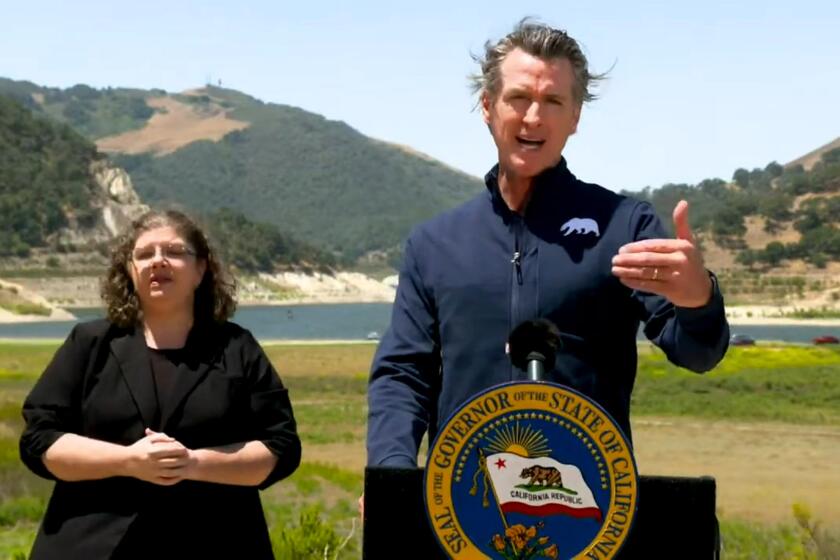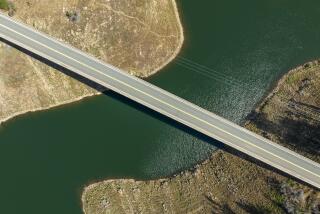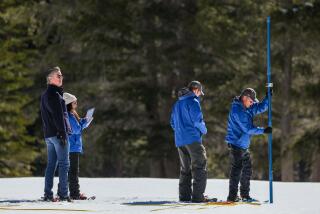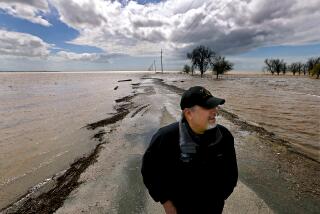California’s regional drought state of emergency: What you need to know
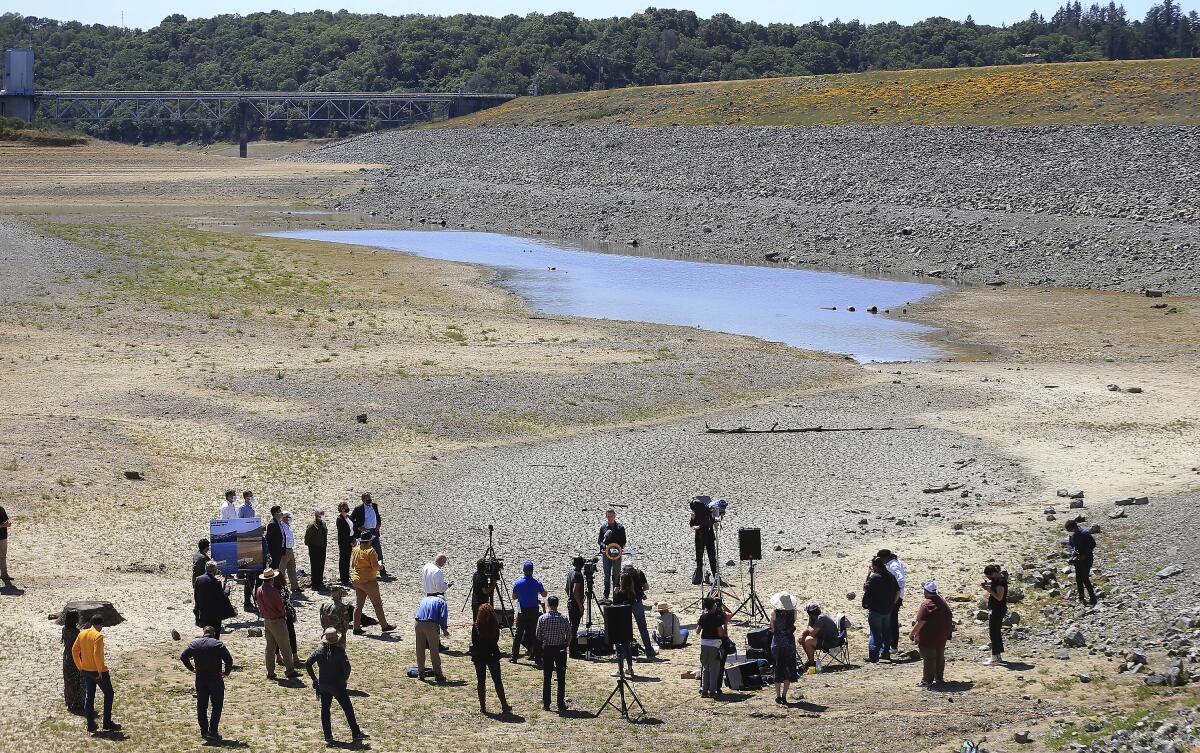
Gov. Gavin Newsom on Thursday extended his drought emergency declarations to counties representing roughly 42% of Californians and asked everyone to do their part to save water amid a worsening drought.
Gov. Gavin Newsom on Thursday expanded his regional drought state of emergency to apply to 50 California counties, or roughly 42% of the state’s population.
Here are the basics:
Where does the emergency order apply?
Newsom’s regional drought state of emergency applies to 50 California counties.
Newsom added Inyo, Marin, Mono, San Mateo, Santa Barbara, Monterey, San Luis Obispo, Santa Clara and Santa Cruz counties to his regional emergency order on Thursday. The governor’s original order on April 21 applied to Mendocino and Sonoma counties before he added another 39 counties on May 10.
Those counties were Del Norte, Humboldt, Siskiyou, Trinity, Alameda, Alpine, Amador, Butte, Calaveras, Colusa, Contra Costa, El Dorado, Fresno, Glenn, Kern, Kings, Lake, Lassen, Madera, Mariposa, Merced, Modoc, Napa, Nevada, Placer, Plumas, Sacramento, San Benito, San Joaquin, Shasta, Sierra, Solano, Stanislaus, Sutter, Tehama, Tulare, Tuolumne, Yolo and Yuba counties.
What counties are not covered?
Only Imperial, Los Angeles, Orange, Riverside, San Bernardino, San Diego, San Francisco and Ventura counties are not under a regional drought state of emergency at this time.
In general, Southern California is in better shape with regard to the drought than other areas of the state. The region is mostly supplied by big federal and state water systems, rather than local precipitation.
The Metropolitan Water District of Southern California, which imports water from the Colorado River and the north, says it has record reserves in regional reservoirs and groundwater banks — enough to carry it through this year and next. Los Angeles, which is partly supplied by the MWD, similarly doesn’t anticipate shortages, officials said last month.
The governor and his aides have pushed back on the need for more drastic action, saying water resources vary in different parts of the state and not all 58 counties are in an emergency situation.
What are the voluntary water savings Newsom wants?
Newsom is asking all Californians to voluntarily cut back on water consumption by 15% compared with last year.
If achieved, a voluntary 15% water reduction statewide would save roughly 850,000 acre feet of water, which is enough to supply 1.7 million households for a year, according to the governor’s office.
What are some ways to save water?
Officials have listed many steps to save water. During the last drought, Californians managed to cut water use significantly. In April 2015, Gov. Jerry Brown asked residents to reduce their water use by 25% in response to a punishing four-year drought. Within a year, they had nearly hit the goal.
- Here is an L.A. Times guide to 43 things you can do to save water at your home.
- Five simple ways to cut your water use, also from The Times.
- Here are tips from the state of California.
- And how to save water in the yard.
More to Read
Sign up for Essential California
The most important California stories and recommendations in your inbox every morning.
You may occasionally receive promotional content from the Los Angeles Times.
